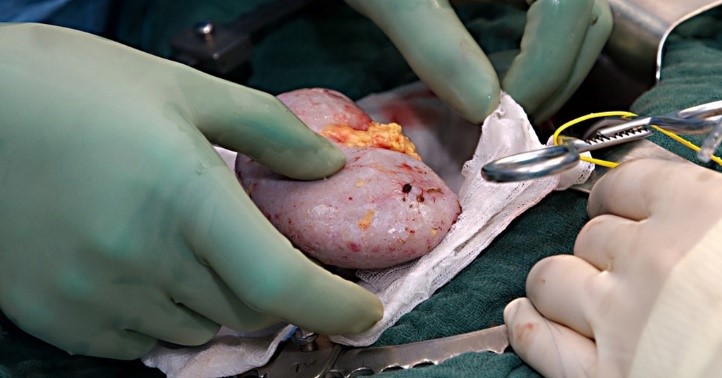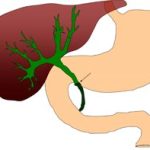Kidney Transplant in Iran
A kidney transplant is a surgery to place a healthy kidney from a living or deceased donor into a person whose kidneys no longer function properly.
The kidneys are two bean-shaped organs located on each side of the spine just below the rib cage. Each is about the size of a fist. Their main function is to filter and remove waste, minerals and fluid from the blood by producing urine.
How much does kidney transplant in Iran cost?
The low cost of kidney transplant surgery in Iran is one of the most important reasons that has made Iran an ideal destination for medical tourism. Although the exact cost of this surgery, like any other surgery, depends on your needs and conditions and the facilities needed for the surgery, the cost of kidney transplant surgery in Iran is still incredibly lower than in other countries. For example, the cost of this surgery in the United States is about $ 400,000, while in Iran it is about $ 8,000-15,000!
When do you need a kidney transplant in Iran?
The kidney is a paired organ that is placed on both sides of the spine below the diaphragm. In an adult it weighs 120 to 300 grams and more than a liter of blood flows through the kidneys per minute. This very high blood flow rate is necessary for the clearing and filtering function of the kidneys:
- The kidneys remove endogenous waste and foreign substances (such as drugs) from the blood that are no longer required.
- They are involved in regulating the body’s water and electrolyte balance.
- They produce various hormones that are important for blood pressure, blood formation and bone metabolism (renin, erythropoietin and calcitriol).
Various diseases can lead to irreversible kidney failure. Diabetes mellitus or longstanding high blood pressure are the most common causes of kidney damage. Inflammatory kidney diseases, which are triggered by a malfunction of the body’s defense system (immune system) or the long-term use of pain medication, are less common. Young patients often have genetic defects, inflammatory kidney diseases or malformations. Acute kidney failure develops within a few days to weeks. The causes are usually severe previous illnesses, severe fluid loss or allergic reactions to medication. In most cases, acute kidney failure heals almost completely. Permanent kidney damage (chronic kidney failure) develops slowly and often goes unnoticed for years. In most cases, damage that has occurred once does not resolve itself.If the kidneys finally fail, their function must either be replaced by blood washing (dialysis) or by the transplantation of a donor kidney. As a rule, more donor organs are needed than are donated. This means that people who need a donor organ have to be put on a waiting list for that organ. To be placed on the waiting list for a donor kidney, there must be definitive renal failure. The patient must have dialysis or it must be foreseeable that it will be required.
What are the medical conditions for tourists (non-Iranians) to have a kidney transplant in Iran?
Patient condition:
All evidence and medical records related to the patient’s kidney function are required, including all results related to the assessment of renal failure (GFR <10-15, chronic hypertension, serum creatinine level >12mg/dl – BUN level >40 mg/dL and the amount of proteinuria >3g in 24 hours).
Documents related to the start time, number, and duration of dialysis sessions are also required. A complete description of the patient’s cardiovascular history and whether he or she has diabetes or any other underlying condition should be included in the medical report. An ultrasound report of the kidney and urinary tract is also required.
Donor Conditions:
The donor of the kidney transplant must be alive. A family member, such as a parent, child, brother, or sister, may be a living donor (living-related donation). Someone emotionally connected to the patient, such as a close friend, spouse, or in-law, will also donate a kidney (living unrelated donation). A genetic connection between the donor and recipient is no longer needed for a successful transplant thanks to improved medications.
The donor must be in good general health and must not smoke or drink alcohol. Nor should it be treated for a specific disease. Clinical conditions of a donor include weight under 70 kg, no history of kidney disease, including kidney stones or infection, and age under 40 years.
What happens after a kidney transplant in Iran?
After a kidney transplant in Iran, the patient is taken to a recovery room. Once the patient’s blood pressure, heart rate, and respiration are stable and the patient regains consciousness, he or she is transferred to the Intensive Care Unit (ICU) and monitored closely. When the patient is ready to leave the intensive care unit, he or she is transferred to the general ward. Usually, after a kidney transplant, the patient needs to stay in the hospital for a few days and will be discharged after complete recovery.
- If the kidney is donated from a living person, it begins to produce urine immediately after being placed in the body, but if the kidney is taken from a dead donor, it takes some time to start producing urine; Therefore, in this case, you should continue your dialysis after the kidney transplant surgery in Iran until the urine production process returns to normal.
- A urinary catheter is attached to your bladder that expels urine from your body. Your doctor will also check your urine level to make sure your new kidney is working properly.
- As long as you are able to eat and drink yourself, nutrients enter your body through the IV line.
- Your medical team will monitor the effectiveness of anti-rejection drugs that prevent transplant rejection (including immunosuppressive drugs that prevent immune system attack to the new kidney) at all times so that you can find the best dose and combination of your medications.
- A blood test will usually be taken from you. The purpose of this test is to check the condition of your new kidney and other organs in your body, including your liver, lungs, and circulatory system.
- Over time, your nutrition will slowly shift from liquids to semi-solid and then normal foods; But in general, you will have nutritional restrictions until your new kidney is fully functioning in your body, and you should follow your doctor’s instructions.
- Usually, after one day of the transplant, you can move; After your doctor allows you to move, you should get out of bed several times a day and be active.
- If you have pain, you should take painkillers under the supervision of your doctor. Be careful not to use aspirin or painkillers that increase the risk of bleeding. Under any circumstances, use only medications that are recommended by your doctor.
- Nurses, pharmacists, nutritionists, physiotherapists, and other specialists on your transplant team will teach you how to take care of your body and your wounds so that you can take good care of yourself after your discharge from the hospital.
Once your vital signs have stabilized, your transplanted kidney function has begun well, and you no longer need hospital care, you are ready to be discharged and go home.
Post-kidney transplant care
The following tips are important for patients who have had a kidney transplant surgery in Iran:
- You will not be allowed to drive for a while after the kidney transplant in Iran; So, someone should get you from the hospital to home and from the home to the doctor’s office for an examination.
- After you leave the hospital and return home, the important thing is to always keep your wound clean and dry to reduce the risk of infection.
- The patient must visit the nephrologist (kidney specialist) regularly, who will check the function of the donor kidney and recognize the early warning signs of rejection or infection.
- The sutures or staples of your wound are removed under the supervision of a doctor during the appointments after surgery.
- Additional medication and food supplements (including over-the-counter or herbal ones) must always be discussed with a doctor in order to avoid interactions with the immunosuppressants.
- Smoking and passive smoking are prohibited, especially when waiting for the donor organ.
- Personal hygiene requires special attention because microorganisms can be dangerous for immunocompromised patients.
- Dental procedures often require the preventive intake of an antibiotic to prevent bacteria from entering the bloodstream.
- Keeping pets should be done with caution and preferably with the use of masks and gloves.
- Contact with patients with infectious diseases should be avoided as far as possible.
- Sport and exercise are important to keep the body healthy. However, intensive training must be discussed with the doctor.
- Since immunosuppressed patients are more prone to skin tumors, very good protection against sun radiation is always necessary.
- Any activity or situation that puts pressure on the new kidney should be avoided.
- Check your blood pressure and weight every day at home; An increase in these items may indicate that your kidneys are not working well. If you see this, contact your transplant team immediately for a thorough examination.
















